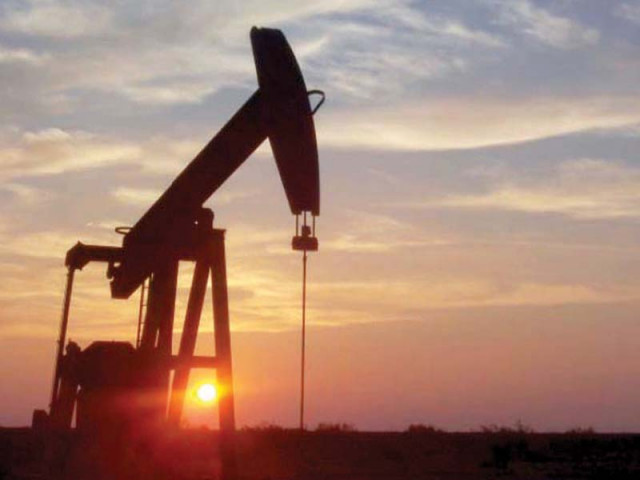Outlook: Oil production set to reach record 130,000 bpd
Industry players confident of output boost in one or two years.

The petroleum industry generally believes Pakistan’s geology is gas-prone rather than having any substantial oil potential. PHOTO: FILE
Pakistan’s crude oil output is expected to increase to 130,000 barrels per day in one or two years, a sharp rise from the stagnant 66,000 bpd seen in the last few years, industry players told The Express Tribune.
It has already risen to all-time high of 91,000 bpd in recent weeks, according to latest Pakistan Petroleum Institute (PPIS) statistics. That comes months after the highest level of 84,650 bpd was achieved.
Average oil production was at 81,000 bpd in 2013, up 13% over the previous year with most of the increase coming from the wells located in Khyber-Pakthunkhwa, especially the Tal Block.
“We were actually expecting production to rise to 100,000 bpd in 2013,” said Masood Siddiqui, a petroleum industry veteran who headed Oil and Gas Development Company Limited (OGDCL) till a few months back.
“If the work continues like it is right now, then we should be able to achieve the target of 130,000 to 140,000 bpd in a short time,” he said.
In other words, Pakistan’s annual oil production stands at around 4 million tons. That is a little less than what is imported every year to meet demand. In fiscal 2012-13, Islamabad spent $5.392 billion to import 6.939 million tons.
During the seven-month (July-June) period of current fiscal 2013-14, 4.22 million tons have been imported against $3.3 billion, according to Pakistan Bureau of Statistics.
The 130,000 bpd level appears very much reachable because of the substantial rise in drilling activity, Siddiqui said. “Around 76 wells were drilled last year alone. We have never seen work on so many wells being done in one year.”
While there remains uncertainty over the exact size of oil reserves in absence of any broad geological survey, Pakistan has estimated recoverable reserves of 27 million barrels, according to the last Economic Survey.
Petroleum industry generally believes Pakistan’s geology is gas-prone rather than having any substantial oil potential. The fact that companies have to drill deep wells to find hydrocarbon reserves adds credence to this argument.
The wells at Makori field have a depth of around 12,000 feet.
However, Siddiqui points out lack of experience as another reason behind this view. “You have to remember that our geoscientists and geologists have been mostly trained to study gas structures since Sui field was discovered 50 years back.”
But the perception is changing. “Ten years back, experts would have laughed at us if we would have asked them to find oil in K-P from where all the production is coming now.”
Higher oil production has also added to profitability of petroleum upstream companies, says Vahaj Ahmed, analyst at Topline Securities. “The realised price of oil is six-and-a-half times more than what these companies get for gas.”
The average price of gas in Pakistan is $12.5 per barrels of oil equivalent (BOE) against oil’s $85 per BOE.
Despite the seemingly high return on finding and producing oil, the companies take cautious approach because of the huge capital expenditure, Ahmed said.
Higher oil production does not mean it will help the balance of trade substantially since the country spends a lot to import petroleum products like diesel and furnace oil as well.
Published in The Express Tribune, March 9th, 2014.
Like Business on Facebook, follow @TribuneBiz on Twitter to stay informed and join in the conversation.



















COMMENTS
Comments are moderated and generally will be posted if they are on-topic and not abusive.
For more information, please see our Comments FAQ